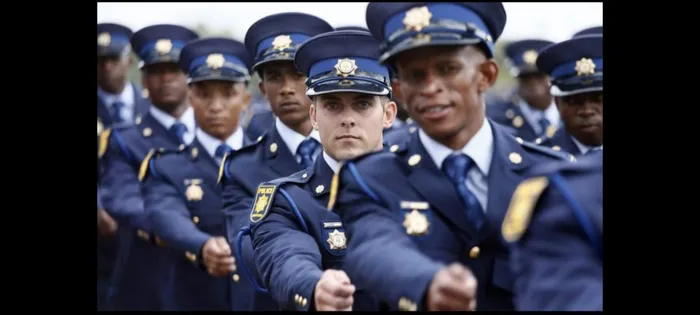Corruption and collusion within the SAPS: Why an independent inquiry is long overdue

Calls for inquiry as South Africa's Police force faces allegations of corruption
Image: SAPS
South Africa’s police force, once seen as the guardian of law and order, has over the years become emblematic of systemic corruption, political manipulation, and criminal collusion, prompting calls for an enquiry.
From the days of apartheid to the present, revelations about top officials teaming up with criminal networks and political figures shielding illicit activities have severely undermined public trust.
Recent scandals involving senior police figures like Major General Nhlanhla Mkhwanazi, who blew the lid earlier this week, highlight how deeply rooted these issues are and how they threaten the very foundations of law enforcement in the country.
Police Minister Senzo Mchunu has been accused of having ties to criminal gangs and of meddling in police investigations into politically motivated murders.
Mkhwanazi detailed a sequence of events he claims led to the "orchestrated" disbandment of a task force set up in 2018 to investigate the killing of politicians, mainly in KwaZulu-Natal.
KZN Violence Monitor Mary de Haas said only an enquiry can shed light on the alleged criminal activities that have rocked the SAPS.
“This is why a full, independent inquiry is necessary”, de Haas warned, “The longer it takes to uncover the truth, the more entrenched the rot becomes.”
She highlighted how political considerations have historically influenced police appointments and operations.
“Since its official establishment in 1995, the South African Police Service (SAPS) has been plagued by misconduct allegations at the highest levels.
She argued that prominent figures such as former police commissioner Jackie Selebi, former police Ministers Bheki Cele and Nathi Mthethwa have all faced allegations related to corruption, revealing a pattern of leadership compromised by criminal links and political interference.
“But beyond individual cases, the broader issue is the systemic entanglement of crime and politics within SAPS.
“Evidence has repeatedly pointed to a culture where criminal syndicates operate with relative impunity, protected - or at least overlooked - by officials in positions of power,” said de Haas.
De Haas added that Mkhwanazi has been actively cultivating a "one-sided and favourable" image of himself as a crime fighter, using media to boost his profile.
"Many are fooled,” she said, “but he should be disciplined, as what he did was completely against SAPS protocol."
De Haas explained that “both Mkhwanazi and those around him are in a difficult position,” given the political pressures involved.
She said that “there’s a lot of strategic considerations President Ramaphosa has to weigh,” especially with opposition parties and factions within the ANC making political capital out of these allegations.
She argued that these issues are not new, adding that they have been part of SAPS for decades, citing the legacy of apartheid-era chemical warfare drugs distributed by security forces and the organised syndicates that grew post-1994.
“The National Prosecuting Authority’s problems are even worse than the police’s,” she added.
“Most people know there’s a great deal of rot in the police, but they also need to remember that there are good officers at all levels.”
"The challenge is that drug and organised crime syndicates have long had a foothold in our communities - an issue that predates democracy and has only worsened.”
She further stressed that “without transparency and independent investigations, the public’s faith in law enforcement and governance will continue to decline,” warning that “trust erodes when leaders protect the corrupt, and when justice seems selective or politicised.”
thabo.makwakwa@inl.co.za
IOL Politics
Related Topics: